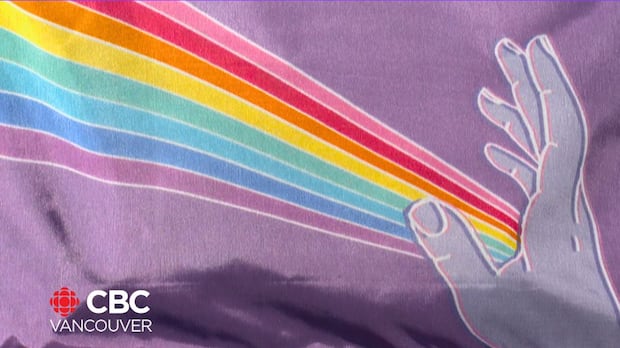Shawn Mendes says rumours about sexuality 'felt like an intrusion.' Here's why such speculation can be harmful
'I'm just figuring it out like everyone,' Canadian singer tells fans in widely shared video

Shawn Mendes is speaking out about the speculation surrounding his sexuality.
In a video widely shared on social media, the Canadian singer, 26, addresses the audience during his For Friends and Family Only tour at the Red Rocks Amphitheatre in Colorado.
"There's this thing about my sexuality, and people have been talking about it so long," he said in between songs, reflecting on the fact that his career started when he was 15 years old.
Experts say that when someone experiences public scrutiny over their sexuality, like Mendes has, it can impact their mental health and keep them from discovering who they are in a safe way.
Mendes said the speculation had always "felt like an intrusion" on something personal.
Shawn Mendes has been pressured and bullied for years, even before he was 18, to talk about his sexuality.<br><br>He spoke about it tonight at his show at Red Rocks.<br><br>“The real truth about my life and sexuality is that, man I’m just figuring it out like everyone. I don’t really know… <a href="https://t.co/HhUYucRKoc">pic.twitter.com/HhUYucRKoc</a>
—@yasharHe described sexuality as a "beautifully complex thing" that is "hard to just put into boxes."
"The real truth about my life and my sexuality is that, man, I'm just figuring it out like everyone. And I don't really know sometimes and I know other times, and it feels really scary because we live in a society that has a lot to say about that.
"And I'm trying to be really brave and just allow myself to be a human and feel things. And that's all I really want to say about that for now."
Mendes followed his comments by performing The Mountain, a song in which he discusses his sexuality.
The lyrics include: "You can say I'm too young, you can say I'm too old, you can say I like girls or boys, whatever fits your mould."
Some 2SLGBTQ+ advocates praised Mendes for his comments.
"He needs to be applauded for starting a much-needed conversation that youth need to hear, especially from a celebrity perspective," said Omid Razavi, the executive director at It Gets Better Canada, a national charity that supports 2SLGBTQ+ youth.
Years of speculation
People have speculated about Mendes' sexuality for years.
When he was 17 years old, the singer spoke out via his Snapchat account after scrolling through some YouTube comments suggesting that he gave off a "gay vibe."
"First of all, I'm not gay. Second of all, it shouldn't make a difference if I was or if I wasn't," he said.
Then in 2020, Mendes spoke on a podcast, calling the speculation frustrating. He said he felt anger for the people close to him who were gay but had not yet come out, and that he didn't know how to respond to the situation.
Razavi said that when people experience this kind of scrutiny in a very public way, they don't have the breathing room to figure out who they are.
"No one should face pressure to come to the realization of who you are or who you want to be publicly, or to label yourselves publicly, unless you know you have that space to do so," he said.
When people try to figure out these personal details, they do so "at the risk of the mental health of the person that they're dealing with," he added.
This kind of pressure can also cause someone to feel "shame and less valid in their identity, which can have negative consequences for their mental health," said Helen Kennedy, the executive director of Egale Canada, in an email to CBC News.
Scrutiny can be 'harmful'
Other celebrities have had to endure similar scrutiny from the public.
In 2022, Kit Connor, an actor from Netflix's Heartstopper — a love story about two teenage boys — said he was forced to come out as bisexual due to speculation around his sexuality and pressure from people on social media.
"Congrats for forcing an 18-year-old to out himself. I think some of you missed the point of the show," Connor wrote on X, formerly known as Twitter.
Singer Billie Eilish is another celebrity whose sexuality has been discussed at length. In 2021, social media users accused her of "queerbaiting" after a music video featured her and several other women dancing and playing games during a sleepover.

Queerbaiting refers to a marketing tactic that hints at 2SLGBTQ+ representation without actually delivering on it.
"I got to watch the entire internet slam my sister for queerbaiting for an entire year when, in reality, you were all forcing her to label and out herself," her brother and collaborator Finneas wrote online in a post that has since been deleted.
Conversations like these that try to label someone else's sexuality can be harmful, according to Razavi.
He said that sexuality and identity evolve over time — something he sees with the youth he works with, who often identify differently now than they did when he met them. When someone is "forced" to state their identity, he added, "you often feel like you're going to be stamped with that for life. And that's not the case."
"Our culture assumes that everyone will be heterosexual," said j wallace skelton, an assistant professor of queer studies in education at the University of Regina. "Often when there's speculation that someone is other than heterosexual, it is experienced with a level of mocking, with a level of stigma.
"It really makes it harder for someone to spend time figuring out who they are and how they want to relate to others."
As for Mendes, Razavi said he hopes he's "given the space to breathe" and to "access his authenticity through expressing himself through music."
"And then hopefully the rest will all just fall into place," he said.

